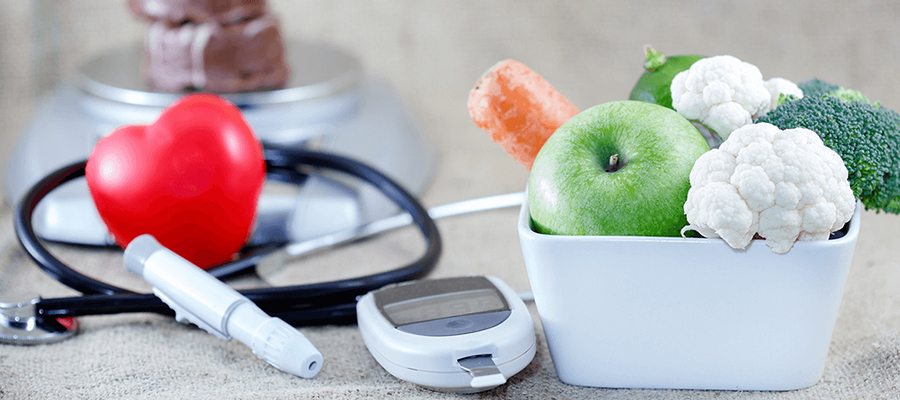
Estimated reading time: 4 minutes and 22 seconds
Diabetes Nutrition
Expert Diabetes Nutrition Guidance at Aktif International Hospitals
Proper nutrition plays a crucial role in managing diabetes and maintaining overall health. At Aktif International Hospitals, we offer expert diabetes nutrition guidance provided by registered dietitians who specialize in diabetes care. Our goal is to empower individuals with diabetes to make informed dietary choices that support blood sugar control, weight management, and overall well-being.
Frequently Asked Questions
Why is nutrition important for managing diabetes?
Nutrition is essential for managing diabetes because it directly impacts blood sugar levels, weight management, and overall health. By following a healthy eating plan tailored to their individual needs, individuals with diabetes can better control their blood sugar levels, reduce the risk of diabetes-related complications, and improve their quality of life.
What are the key principles of diabetes nutrition?
The key principles of diabetes nutrition include:
- Carbohydrate management: Carbohydrates have the most significant impact on blood sugar levels, so it’s essential to monitor carbohydrate intake and choose healthy, complex carbohydrates that are high in fiber and low in added sugars.
- Portion control: Controlling portion sizes helps regulate calorie intake, manage blood sugar levels, and support weight management. Using measuring cups, food scales, and visual cues can help individuals with diabetes manage portion sizes effectively.
- Balanced meals: Consuming a balanced diet that includes a variety of nutrient-rich foods, such as fruits, vegetables, whole grains, lean proteins, and healthy fats, helps provide essential vitamins, minerals, and antioxidants while promoting overall health and well-being.
- Glycemic index: Considering the glycemic index (GI) of foods can help individuals with diabetes choose foods that have a minimal impact on blood sugar levels and promote more stable blood sugar control.
- Meal timing: Eating regular meals and snacks throughout the day helps maintain consistent blood sugar levels and prevents extreme fluctuations in blood sugar levels.
- Monitoring: Regularly monitoring blood sugar levels and tracking food intake can help individuals with diabetes identify patterns, make adjustments to their eating plan, and achieve optimal blood sugar control.
What are some recommended foods for individuals with diabetes?
Recommended foods for individuals with diabetes include:
- Non-starchy vegetables: Leafy greens, broccoli, cauliflower, carrots, bell peppers, and cucumbers are low in calories and carbohydrates and high in fiber, vitamins, and minerals.
- Whole grains: Whole grains such as brown rice, quinoa, barley, oats, and whole wheat are rich in fiber, which helps regulate blood sugar levels and promote satiety.
- Lean proteins: Lean protein sources such as skinless poultry, fish, tofu, legumes, and low-fat dairy products provide essential nutrients and help maintain muscle mass while controlling blood sugar levels.
- Healthy fats: Foods rich in healthy fats, such as avocados, nuts, seeds, olive oil, and fatty fish, can help improve cholesterol levels, reduce inflammation, and support heart health when consumed in moderation.
How can individuals with diabetes manage their blood sugar levels through nutrition?
Individuals with diabetes can manage their blood sugar levels through nutrition by:
- Monitoring carbohydrate intake: Counting carbohydrates and spacing them evenly throughout the day can help individuals with diabetes manage blood sugar levels and prevent spikes and crashes.
- Choosing low-GI foods: Opting for low-glycemic-index foods such as non-starchy vegetables, whole grains, legumes, and lean proteins can help stabilize blood sugar levels and promote more consistent energy levels.
- Balancing meals and snacks: Eating balanced meals that include a combination of carbohydrates, protein, and healthy fats can help prevent blood sugar spikes and support more stable blood sugar control.
- Portion control: Controlling portion sizes and avoiding oversized servings of high-carbohydrate foods can help prevent overeating and maintain more consistent blood sugar levels.
What are some tips for dining out with diabetes?
Some tips for dining out with diabetes include:
- Planning ahead: Reviewing restaurant menus online, choosing restaurants that offer healthy options, and planning meals in advance can help individuals with diabetes make informed choices and avoid impulsive decisions.
- Making substitutions: Asking for substitutions, such as swapping out refined carbohydrates for whole grains or replacing fried foods with grilled or steamed options, can help make restaurant meals healthier and more diabetes-friendly.
- Watching portion sizes: Paying attention to portion sizes and avoiding oversized servings can help individuals with diabetes manage their calorie and carbohydrate intake while dining out.
- Being mindful of beverages: Choosing water, unsweetened tea, or sparkling water instead of sugary beverages can help reduce calorie and carbohydrate intake and support blood sugar control.
Trust Aktif International Hospitals for Expert Diabetes Nutrition Guidance
At Aktif International Hospitals, we understand the importance of nutrition in managing diabetes and promoting overall health and well-being. Our team of registered dietitians specializes in diabetes care and is dedicated to providing expert nutrition guidance tailored to the unique needs of each individual with diabetes. Schedule a consultation with us today and take control of your diabetes through proper nutrition with Aktif International Hospitals.
Author: Ecem Özdilkural


 TR
TR